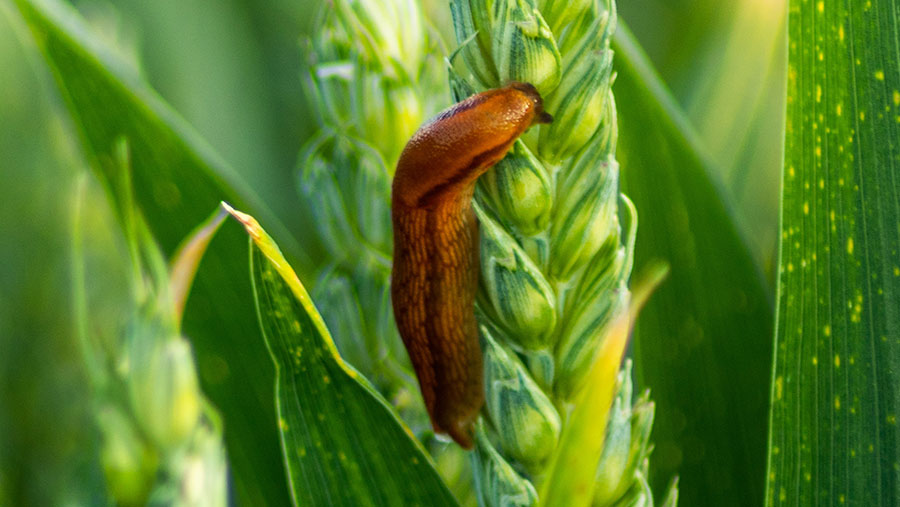Farmers asked to send in slugs for feeding analysis
 © Matt/Adobe Stock
© Matt/Adobe Stock Farmers across the UK are encouraged to capture field slugs for feeding analysis this spring, as part of a farmer-led research project exploring new ways to manage slug damage.
The ultimate aim is to develop a future wheat variety with slug-resistant traits.
Led by the British On-Farm Innovation Network (Bofin), the project plans to gauge how palatable a range of different wheat varieties is to slugs, in order to help farmers reduce reliance on chemical control measures and potential environmental impact.
Scientists at the John Innes Centre in Norwich are hoping farmers will trap and send in about 1,000 slugs from their fields for feeding trial analysis at the centre’s insectary.
See also: Why growers should consider growing borage in 2023
The costs of slugs
Slug damage costs UK arable farmers £100m every year and is a key cause of cereal damage.
Oxfordshire farmer and Bofin founder Tom Allen-Stevens explains: “As slugs get active this month, rather than let them graze on crops, we’re keen for farmers to join our group of ‘slug scouts’, who will trap the pests and send them in for this important study.”
The volunteer farmers will be provided with a pack, including containers and postage-paid envelopes. Instructions on how to set up an effective trap known as a “slimery” will be provided.
“The ‘slimery’ is what you will use to attract and trap slug populations – it will want to be in the most slug-infested spot of your farm,” explains Mr Allen-Stevens.
Slug-resistant wheat
The project follows initial studies that indicated one landrace wheat variety, known as Watkins 788, may be resistant to slug damage.
Watkins 788 is one of a collection of landrace wheats currently being screened for traits by scientists working on the Defra-funded Wheat Genetic Improvement Network programme.
Simon Griffiths, the project’s lead researcher at the John Innes Centre, highlights how the initial feeding trials showed Watkins788 was consistently spurned by slugs.
“We multiplied up enough of the variety for farmer-led trials that took place on farms across England over the autumn and winter,” explains Dr Griffiths.
These were then conducted by 10 trial farmers, who followed an in-field trial protocol drawn up by slug behaviour expert Professor Keith Walters of Harper Adams University.
Results are currently being assessed and are due to be published at a webinar taking place on 16 March.
The Slug-Resistant Wheat project is a farmer-led study that started in April 2022. Co-ordinated by Bofin, anyone can join for free and get involved with the group of 60 farmers and scientists.
More information here or email info@bofin.org.uk
